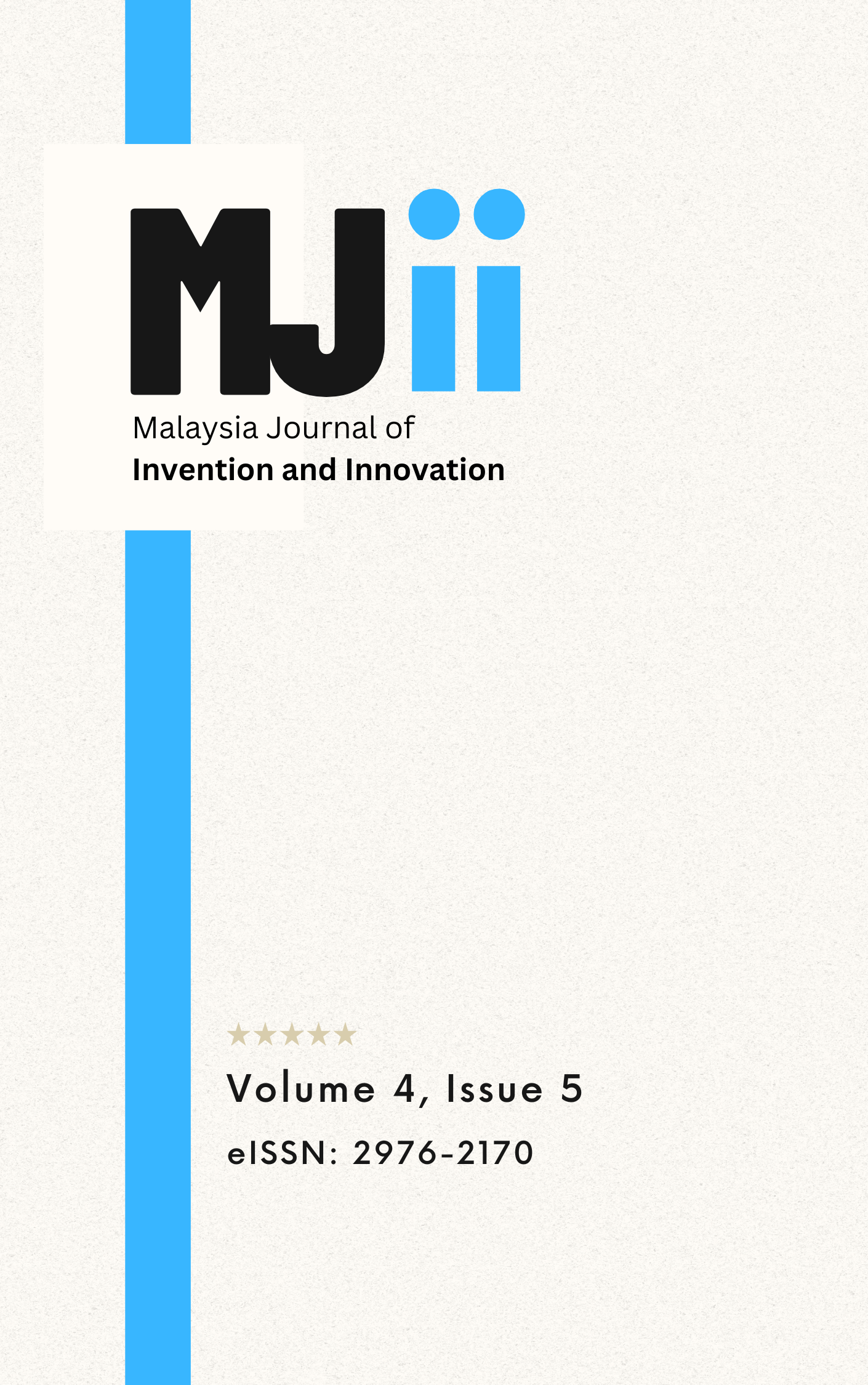Emosi dan Faktor Mempengaruhi Murid Pemulihan Khas Sekolah Rendah
DOI:
https://doi.org/10.64382/mjii.v4i5.124Abstract
Murid mengalami pelbagai jenis emosi sepanjang hari di sekolah. Kajian ini bertujuan untuk mengenal pasti jenis dan kekerapan emosi murid pemulihan khas serta meneroka faktor yang mempengaruhi emosi mereka. Kajian ini menggunakan kaedah penyelidikan campuran iaitu kaedah kuantitatif dan kualitatif. Seramai enam orang murid pemulihan khas yang berumur 9 tahun telah dipilih melalui kaedah persampelan bertujuan. Instrumen yang digunakan dalam kajian ini ialah soal selidik dan temu bual. Data dikumpul melalui soal selidik dan temu bual separa berstruktur. Data kuantitatif dianalisis secara deskriptif manakala data temu bual dianalisis secara tematik. Dapatan kajian menunjukkan bahawa jenis emosi yang dialami oleh murid pemulihan khas ialah gembira, sedih, takut, kejut dan marah. Emosi gembira adalah emosi dominan dalam kalangan murid pemulihan khas. Kekerapan emosi gembira didapati paling tinggi antara jenis emosi yang dialami oleh murid pemulihan khas. Dapatan kajian ini menunjukkan murid pemulihan khas cenderung mengalami emosi gembira sepanjang hari di sekolah. Faktor yang mempengaruhi emosi murid pemulihan khas sekolah rendah ialah faktor aktiviti pembelajaran, sokongan guru, sokongan rakan sebaya dan keluarga. Kajian ini membawa implikasi kepada guru pemulihan khas agar lebih memahami emosi yang dialami oleh murid pemuihan seterusnya membantu guru merancang aktiviti yang mampu meningkatkan emosi gembira dalam kalangan murid pemulihan khas di sekolah.
Downloads
Published
Issue
Section
License
Copyright (c) 2025 Cheah Chinn Chyr, Muhammad Syawal Amran

This work is licensed under a Creative Commons Attribution 4.0 International License.
The authors of MJII retain copyright to the content of the articles.
The content is published under the Creative Commons Attribution (CC BY) 4.0 which allows content to be copied, adapted, displayed, distributed, republished, or otherwise re-used for any purpose, including for adaptation and commercial use provided the content is attributed without any restriction.
Authors Rights
The Journal grants you the following non-exclusive rights, subject to giving propoer acknowledgement to the original journal. The authors may:
(i) to reprint or reproduce the contribution, in whole or in part, in any publication of your interest.
(ii) to use material for teaching purposes; including availability of the matarial in academic course.
(iii) to post a copy of the contribution on your personal or institutional web server, provided that the server is non-commercial and there are no charges for access, and
(iv) to deposit a copy of the contribution in a non-commercial data repository maintained by an institution of which you are a member.
Author's Agreement
Author(s) guarantee the journal the following:
(i) that the contribution is their original work;
(ii) that it contains, no matter what, content that is defamatory or is otherwise unlawful or which invades rights of privacy or publicity or infringes any proprietary rights (including copyright);
(iii) that the contribution has not been published elsewhere in whole or in part and that no agreement to publish is outstanding other than this agreement. Author(s) agree to be responsible and hold the journal, its editors, staff and affiliate organizations harmless against any claims arising from or related to the breach or inaccuracy of any of the guarantees listed above.
Disclaimer
The editorial team of the MJII and the publication team of Academica Press Solutions share no responsibility regarding the views and opinions expressed by the authors.
The content published in MJII is Open Access and can be shared, adapted, reproduced, reprinted, after appropriate acknowledgment and giving due credit to the author(s) work.


